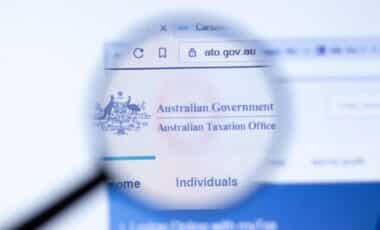As electric vehicle (EV) adoption continues to rise in Australia, the government is considering new ways to address the growing financial pressures on the nation’s road infrastructure. One such approach is the potential introduction of a road-user charge (RUC) for electric car owners. This change would bring EV drivers into the same tax framework that currently applies to petrol and diesel vehicles.
Treasurer Jim Chalmers recently signaled the possibility of a new charge that would help fund the country’s transport infrastructure. With the rising number of electric cars on the road and a significant shortfall in funding for infrastructure projects, the government is exploring ways to ensure that all drivers contribute fairly. While details are still being hashed out, the idea has already sparked significant debate.
What is the Road-User Charge for EVs?
Currently, petrol and diesel drivers contribute to road maintenance and infrastructure via excise duties on fuel. However, electric vehicle owners have largely been exempt from this cost, as they fill their cars using electricity rather than traditional fuel. This discrepancy has raised concerns about whether EV owners are paying their fair share to maintain Australia’s transport systems.
Jim Chalmers has acknowledged that the introduction of an EV-specific tax is “inevitable” as the government grapples with the reality of a shifting motoring landscape. Industry experts, including EV motoring expert Toby Hagon, have agreed that EVs must eventually contribute to road funding, just like petrol and diesel vehicles.
Potential Costs for EV Drivers
While the government has not yet finalized the exact cost, some experts predict that the charge could be around 3 cents per kilometre driven. The average Australian driver covers roughly 12,100 km each year, which would mean EV owners could face an annual charge of about $363. This would be a significant cost to add to the financial responsibilities of owning an electric vehicle, though it would still be lower than the excise petrol and diesel drivers currently pay.
For context, the fuel excise in Australia is currently 50.8 cents per litre, and a typical household spends around $1,200 annually on fuel. With the fuel excise expected to generate $67.6 billion over the four years from 2023-2027, the government is looking for ways to generate similar revenue from the increasing number of electric vehicles on Australian roads.
New $363 EV tax plan for electric drivers amid $67.6 billion cost: 'Inevitability' https://t.co/9GUozMAhWo
— Yahoo Finance Australia (@YahooFinanceAU) June 19, 2025
The Need for Infrastructure Funding
The move to impose a road-user charge on electric vehicles comes in response to the rising costs of maintaining and upgrading Australia’s roads and transport infrastructure. As more Australians choose to drive electric vehicles, the government is facing a growing funding gap, as EV drivers currently contribute little to the maintenance of public roads. The introduction of a road-user charge would help fill this gap and ensure that EV drivers are paying their fair share of road upkeep.
At the same time, however, the transition to EVs is seen as an important step in Australia’s broader push towards reducing carbon emissions. As the country moves to reduce its reliance on fossil fuels, it must balance the need for funding with the environmental benefits of encouraging electric vehicle adoption.
The Debate: Is the Tax Fair?
The potential new tax has sparked debate among experts and the public. Some, like Toby Hagon, argue that EVs should be treated the same as petrol and diesel vehicles when it comes to road funding. “I’m not sure why we would treat EVs any differently to any other car on the road. We should be taxing them all equally,” Hagon said.
Others believe that the introduction of an EV-specific charge is unnecessary and could discourage the adoption of electric vehicles. They argue that the government’s focus should be on encouraging the transition to cleaner energy sources, not imposing additional costs on EV owners. Regardless, the conversation is growing, with many calling for a fair and transparent approach to how the charge is implemented.
The government will need to work with states and territories to determine the finer details of the road-user charge system, as each region has different needs and circumstances. The final decision will likely have wide-reaching implications for the future of transport in Australia.
What’s Next for EV Drivers?
For now, the exact details of the road-user charge remain unclear. As the government continues to consider the financial pressures of maintaining Australia’s transport infrastructure, EV drivers may soon find themselves contributing more directly to the costs of road maintenance.
For those interested in the potential changes, it will be important to stay informed about updates from the government and industry experts. The ongoing discussions will shape how Australia’s transport system evolves in the coming years, particularly as the number of electric vehicles continues to grow.









